| Click here for PDF version | |||||||||||||||||||||||||

Global Leadership in the 21st century
|
|||||||||||||||||||||||||
|
In Spring 2019 WAAS and the United Nations Office at Geneva (UNOG) agreed to collaborate on a one-year project to fill the global leadership vacuum. The initiative seeks to promote the emergence of the dynamic leadership needed at the global level to successfully address the major environmental, social and economic challenges facing humanity. The project has been designed in collaboration with Michael Møller, Director-General of The UN in Geneva. It is being coordinated by Garry Jacobs, WAAS CEO; Donato Kiniger-Passigli, WAAS Special Representative to the UN; and David Chikvaidze, Chief of Staff for the Director-General of UNOG and WAAS Fellow. The project will be undertaken by the WAAS-UNOG project team in collaboration with partner organizations. The research phase of the project will involve a series of expert consultations, workshops and conferences with UN agencies, national governments, national academies, scientific |
research institutions, business and financial organizations, universities, NGOs and youth representatives to identify effective leadership strategies and success stories. The research findings will be presented at a major international conference at Palais des Nations, Geneva in 2020 and in a written report to the UN. The project will seek to develop a positive vision of the future of humanity, assess critical leadership qualities, identify untapped resources, and develop strategies to generate widespread public awareness and a global social movement in support for implementation of the UN Sustainable Development Goals (SDGs). A detailed background paper for the project has been published in the May 2019 issue of Cadmus Journal available for download here. |
||||||||||||||||||||||||
Project Overview: Global Leadership in the 21st Century
|
|||||||||||||||||||||||||
|
Global Leadership in the 21st century, Baku |
The Levant Initiative for World Peace, Rome Approaching 20?? Year, Podgorica Topical Issues in the Globalizing World, Moscow The Kopaonik Business Forum, Serbia Reimagining Higher Education, Lisbon Enabling Human Development & Harmony Upcoming: Cognitive Computing, Society & Well-being, Milano Human-Centered Computer Systems, Bari |
||||||||||||||||||||||||
 |
|||||||||||||||||||||||||
|
|||||||||||||||||||||||||
Official Launch of GL21 at the VII Global Baku Forum |
|||||||||||||||||||||||||
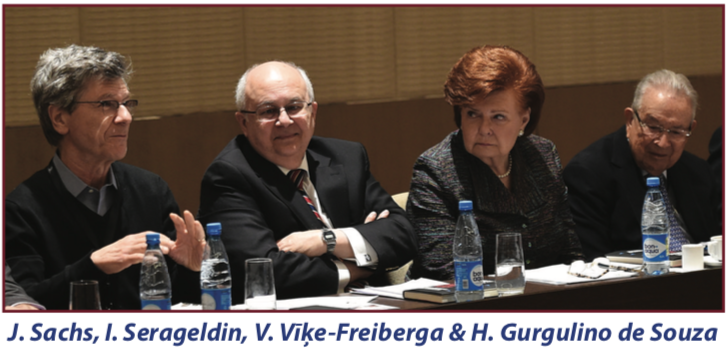
Global Leadership in the 21st Century (GL21) was officially launched in Baku, Azerbaijan on March 17th 2019 during the VII Global Baku Forum organized by WAAS partner Nizami Ganjavi International Centre (NGIC). Heitor Gurgulino de Souza, Garry Jacobs, and NGIC co-chairs Vaira Vīķe-Freiberga, former President of Latvia (1999-2007), and Ismail Serageldin, former Vice-President of World Bank (1992-2000), introduced the project in the joint inaugural session with the Black Sea University Network (BSUN). In his keynote address, economist Jeffrey Sachs, Director of the UN Sustainable Development Solutions Network, stressed that the SDGs are playing a critical leadership role in global society today and that they are an embodiment of and attempt to realize the lofty ideals set forth in the Universal Declaration of Human Rights 70 years ago. The SDGs represent an important shift in emphasis from wealth to well-being—from producing things to developing people. Sachs stressed that having the right goals is essential, but possessing the knowledge of social processes is equally so. It is not enough to know what needs to be done. It is also essential to know the best way to do it. This requires the capacity to conceive and design creative processes that specify the optimal pathways for a sustainable future. Interdisciplinary knowledge of social processes and theory of change are essential to address the critical challenges confronting global society today. Universities need to be reconfigured to play a central role in addressing global challenges. The inaugural meeting was designed to foster open discussion on critical global issues with the goal of being better able to address the many challenges confronting planetary well-being. Efforts were made to identify new and better ways and means of governing, leading and educating, with particular attention to strengthening the performance of existing institutions and processes. Participants explored five interconnected governance and leadership themes. Emil Constantinescu and Tibor Tóth explored from a historical perspective on important leadership achievements and failures; critical leadership challenges and initiatives in the world today; compelling ideas, values and goals driving global social evolution and aligning leadership and social power. |
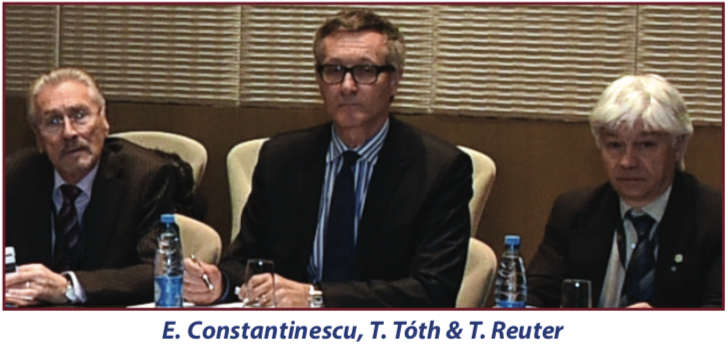
Zlatko Lagumdžija and Hikmet Çetin concentrated on qualities of leadership needed to effectively address global challenges; impact of the chaotic transition to multipolarity on global leadership and strategies to fill the global leadership gap. Rajendra Pachauri and Rosalía Arteaga Serrano moderated the discussion on the need for multi-stakeholder concept of leadership that takes into account the role of international organizations, national governments, business, scientific and educational research institutions and NGOs; coordinating leadership horizontally between parallel initiatives and integrating leadership vertically at the local, national and global levels. The discussion stressed the need for a wider conception of leadership that is not confined by traditional stereotypes of the dynamic individual. Donato Kiniger-Passigli described the WAAS-UN project as a multi-phased, multi-dimensional, multi-stakeholder, human-centered initiative intended to generate transformative ideas and innovative strategies which lead to actions that can generate awareness, release energy, and build support for cooperative global action. Jonathan Granoff focussed on a non-hierarchical, cross-generational approach for effective implementation based on shared goals and values. Pericles Mitkas, President of BSUN, discussed essential qualities, roles, strategies and initiatives needed for effective leadership by universities to address the critical challenges confronting humanity today, with special emphasis on the implementation of the SDGs. David Chikvaidze and Garry Jacobs emphasized that global change can only be practically realized by leadership initiatives that mobilize public opinion, elicit public participation and unleash a global social movement. The recent stirring of environmental youth activists is an encouraging first sign that such a movement can be unleashed as it was by students in the 1960s to protest against war and support human rights and environmental protection, and by European citizens on both sides of the Iron Curtain to end the Cold War. |
||||||||||||||||||||||||

Participants’ Insights on the Baku Inaugural Event |
|||||||||||||||||||||||||
Whole System Leadership
|
|||||||||||||||||||||||||
 |
|||||||||||||||||||||||||
Grassroots Leadership to Awaken Youth and Mobilize Society
|
|||||||||||||||||||||||||
Leadership of Trans-Institutions
|
|||||||||||||||||||||||||
The Role of WAAS in Global Leadership
|
|||||||||||||||||||||||||

WAAS’ Partnership with UNESCO |
|||||||||||||||||||||||||
|
|
of Partnerships in New York.
The Academy’s objective will be to actively collaborate with UNESCO to broaden and enhance the effectiveness of several WAAS programs, including consultations with scientific and educational institutions for the UN-WAAS Global Leadership Project; participation in the WAAS-WUC Future of Education international conference series in partnership with leading universities; development of the transdisciplinary, multistakeholder, multisectoral Masters Program on Leadership and Human Accomplishment; development of courses and training programs on Mind, Thinking & Creativity; and the PG knowledge roundtable series at Inter-University Centre, Dubronik. |
||||||||||||||||||||||||

4th International Conference on Future Education |
|||||||||||||||||||||||||
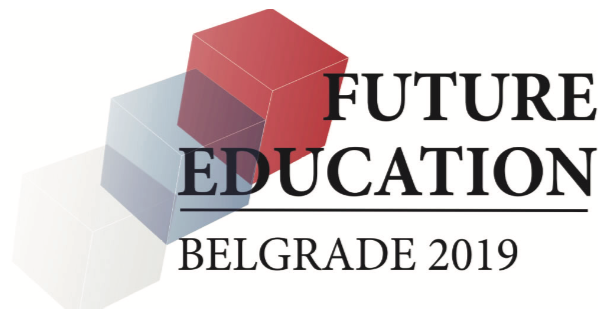
There is an ever widening gap between the education the world needs and the education our present pedagogies and learning technologies are able to offer to students. The gap is also widening between society and individuals that are able to adapt quickly to the demands for educational leadership, innovation and creativity, and those that lag behind. Education has become a critical competitive factor for both the individual and the society. A new type of education—a new paradigm—is urgently needed to address the challenges and paradoxes of the coming age, capitalize on the emerging potentials, and transform possible threats into opportunities. This new paradigm must enable the shift to contextual, relational, human-centered and collaborative education that encourages critical thinking, creativity and technological entrepreneurship. WAAS and WUC are working in partnership with universities and other organizations around the world with this objective. The 4th International Conference on Future Education is being organized in Belgrade, Serbia from November 11-13, 2019 in order to accomplish this goal. The Fourth International Conference on Future Education will examine effective strategies and policies required to accelerate this paradigm change in education. It will draw lessons, insights and practical approaches from successful innovations in education taking |
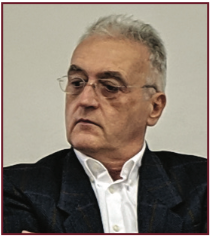 place around the world. It will examine ways to overcome disciplinary barriers in order to provide the integrated knowledge needed for achievement in our increasingly complex world. The Conference will explore methods to shift the focus from subjects to students and from academic to contextual knowledge. It will investigate emerging technologies and pedagogies that can shift the emphasis from teaching to active learning, from competitive to cooperative interaction, and from teacher-student to peer-peer learning environments. It will explore ways to promote development of the capacities for creative thinking, personality and individuality, which will prepare the next generation for high accomplishment in the years to come. This conference is held in collaboration with the Serbian Academy of Sciences and Arts, the University of Belgrade, the Serbian Association of Economists, and the Serbian Chapter of the Club of Rome. place around the world. It will examine ways to overcome disciplinary barriers in order to provide the integrated knowledge needed for achievement in our increasingly complex world. The Conference will explore methods to shift the focus from subjects to students and from academic to contextual knowledge. It will investigate emerging technologies and pedagogies that can shift the emphasis from teaching to active learning, from competitive to cooperative interaction, and from teacher-student to peer-peer learning environments. It will explore ways to promote development of the capacities for creative thinking, personality and individuality, which will prepare the next generation for high accomplishment in the years to come. This conference is held in collaboration with the Serbian Academy of Sciences and Arts, the University of Belgrade, the Serbian Association of Economists, and the Serbian Chapter of the Club of Rome.
The following are some areas the conference will explore:
|
||||||||||||||||||||||||

September 12-13, 2019: United Nations Headquarters, New York
|
|||||||||||||||||||||||||
|
|||||||||||||||||||||||||
UN Project: Future of Capital Summit: How do we develop more Conscious Capital?“The United Nations Sustainable Development Goals (SDGs) are a guide for the social evolution of humankind. Consciousness is what drives our actions; how we allocate capital fuels those actions. Our task is to integrate these dynamics with integrity to achieve a better outcome for humanity.”— Lawrence Ford
|
|||||||||||||||||||||||||
UPCOMING EVENT: Roundtable on the Future of Money
|
|||||||||||||||||||||||||

IUC, Dubrovnik: WAAS-Club of Rome Joint Roundtable |
|||||||||||||||||||||||||
|
The roundtable was framed within the context of three major threats confronting humanity today: Climate Change, the Nuclear Threat, and the Cognitive Technologies of the 4th Industrial Revolution. |
The search for effective, comprehensive, lasting solutions highlighted the need for a fundamental shift away from the dominant world views based on a reductionist, materialist, mechanistic viewpoint to a synthetic, integrated perspective that recognized the interdependence and complexity of phenomena; the identification of blind spots which prevent us from discovering solutions to persistent problems; the affirmation of a value-based, human-centered perspective on which alone an inclusive and sustainable global society can be founded; the need for a whole system approach that recognizes the complex interdependence which makes piecemeal strategies ineffective; the need for a theory of change that describes the driving forces and processes that drive social evolution; and the need to draw on insights from many different cultural perspectives founded on the unity in diversity of humanity’s rich evolutionary experience. Participants agreed on the need for a fundamental shift in thinking and values as essential conditions for an effective transition. The remainder of this report consists of comments by individual participants. |
||||||||||||||||||||||||
Excerpts from the Report titledEmerging New Civilization Initiative (ENCI): Emergence from Emergency |
|||||||||||||||||||||||||
|
In October 2018, the Club of Rome adopted the “Emerging New Civilization Initiative (ENCI)” as one of its core themes. The “New Paradigm Project” of WAAS, launched at the UN in Geneva in 2013, is being developed in parallel. They seek to explore a paradigm shift towards seeing the world as an interconnected whole and bring such a view into the mainstream discourse of global sustainability transformation. It will substantially contribute to overcoming the current value crisis and work towards making humankind a collectively responsible actor in the era of the Anthropocene. It is about overcoming together our many high-speed gridlocks and frustrations, because we have to rethink our problems in frameworks different from those which created them. This endeavor is all about accepting the reality of complexity and the need for system change. Cognitive processes are themselves complex: reality is not fully accessible to our conscious understanding. Ignoring complexity would mean dismissing life, which can only bring tragedies. How can we purposefully change a complex living system of which we are part? Can we be reliable observers of our interdependencies and ourselves? Can we be external observers of a system, which we aspire to transform as if it were a mechanism that we can tune? We have here a double bind, two contradictory injunctions at the same time: recognize complexity around us and create change as if complexity were reducible. We like to say we are systemic in our thinking and a second later, we look for linear solutions. The unique role of ENCI is to create new conversations among many different perspectives, it allows new and better questions to be asked and opens the space for new possibilities to be considered. It talks not only about complexity, it holds complexity, so that the shape of the responses matches the shape of the issues. Rethinking economic and financial processes is mandatory. Economics must be freed from incumbent dogmas. If we put |
In an increasingly financialized world, the demands of rentism do not leave room for taking care of human wellbeing and the health of the biosphere. The transformation of economic processes cannot happen without a shift in our behaviour as consumers. This is one of the many reasons to address Inner Transformation as another perspective of systemic change. It is a call to individuals to move from awareness and the anxiety it brings towards higher levels of consciousness about our relationships with others and with nature as a whole. Conversations on truly new paradigm(s) are actually just starting. They have to include unheard voices and angles, avoid confrontations leading to binary dilemmas, absorb from all wisdoms and contribute to making sense of the world in a different way. Complex systems do not change in alignment with purposeful planning, they get unstuck through mutual learning. By connecting and supporting those who are at the forefront of stimulating and shaping them, ENCI reinforces a shared commitment and interest in forming long term alliances with each other. This is our unique contribution to the reconciliation of humanity with life as a whole. For the full paper, please click here. |
||||||||||||||||||||||||
 |
|||||||||||||||||||||||||
A New Conceptual System for Humanity
|
|||||||||||||||||||||||||
Sustainable System Change
|
|||||||||||||||||||||||||
 |
|||||||||||||||||||||||||
New Civilization with Heart
|
|||||||||||||||||||||||||
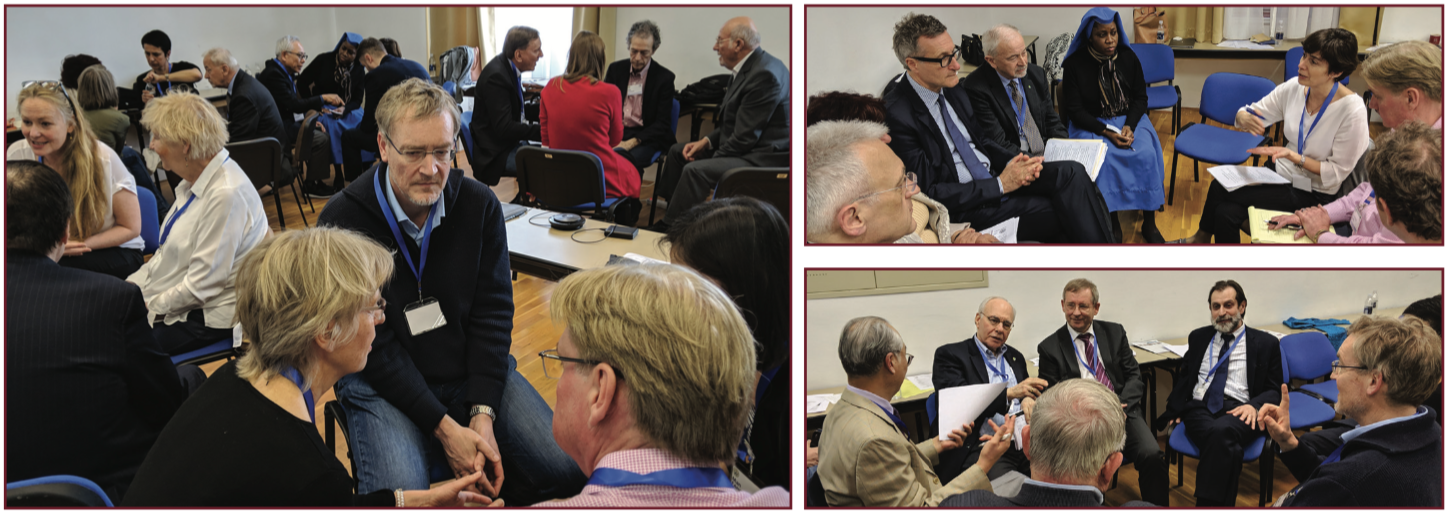 |
|||||||||||||||||||||||||
Change in Worldviews
Science and technology must be reoriented to serve human well-being. Human-centered education has a key role to play in integrating the biosphere and society. |
Pathways Towards a New Civilization
|
||||||||||||||||||||||||
Trans-disciplinary, Trans-ideological Approach |
|||||||||||||||||||||||||
|
The major challenges confronting humanity in the 21st century are income inequality, unemployment, economic, political and military interventions, forced migrations, intercultural conflicts, depletion of natural resources, and climate change. Discussions on these problems should lead to an inclusive and coherent new paradigm of human development which provides sustainable development of mankind. The model should have a multiple disciplinary and trans-ideological character. It should represent a unity of global, regional and national views. In this endeavor, one should start from the Sustainable Development Goals. The new paradigm of human development requires a trans-ideological approach in which the two predominant ideologies of our times—neoliberalism and Chinese socialism—and also other relevant ideologies will be analyzed in detail |
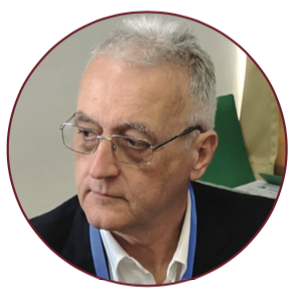 in a multidisciplinary and interdisciplinary way to provide the basis for a transdisciplinary synthesis. in a multidisciplinary and interdisciplinary way to provide the basis for a transdisciplinary synthesis.
The framework of the task should be determined by the major problems confronting humanity today. The result would not be a new ideology, but a general model that would be able to take various special forms, each defined by starting from a certain ideology and going beyond it. |
||||||||||||||||||||||||
What Transformation(s)?
|
|||||||||||||||||||||||||
Obstacles to Transformation
|
Defining Civilization and Finding a Common Ground
In a narrower sense, a civilization comprises the states that existed on the same territory in a longer period and produced specific cultural goods of universal value.
|
||||||||||||||||||||||||
 
30 Years Since the Collapse of Communism in Eastern Europe
|
|||||||||||||||||||||||||
|
The aim of the conference was to create a space for discussion and debate between former heads of state, government officials, academicians, researchers, and representatives of civil society from countries across Eastern Europe and the Balkans, as well as spiritual leaders from a wide variety of religious denominations and geographic areas (Western and Eastern Europe, the Balkans, Republic of Korea, India, Syria, Morocco). The conference topics included: Interfaith Dialogue as an Instrument of Cultural Diplomacy, Perspectives on Achieving Sustainable Peace in the Balkans, The Baltic–Black Sea Space in 2019: Solidary Responsibility—Lessons of Conflicts and Means of Consensus, The Korean Peninsula: Prospects for Reconciliation and Peaceful Reunification, Convergences of Cultural Diplomacy: The Role of International Organizations in Creating the Premises for a Peaceful |
Society, Perspectives of Cultural Diplomacy in Conflict Areas: Practices, Instruments, Projects.
The conference drew on the expertise of democratic political leaders that were faced with the hardships of the post-totalitarian transition. Speakers and panelists included Emil Constantinescu, President of Romania (1996-2000), President of ISACCL and WAAS Trustee; Zlatko Lagumdžija, Prime Minister of Bosnia & Herzegovina (2001-2) and WAAS Fellow; Boris Tadić, President of Serbia (2004–12); Rexhep Meidani, President of Albania (1997-2002); Petar Stoyanov, President of Bulgaria (1997–2002); Valdis Zatlers, President of Latvia (2007-11); Gennady Burbulis, Deputy Prime Minister of the Russian Federation (1991-2); Viktor Yushchenko, President of Ukraine (2009-10); and Petru Lucinschi, President of the Republic of Moldova (1997-2001). WAAS was also represented at the conference by Garry Jacobs, WAAS CEO and Member of The ISACCL Scientific Council and Robert van Harten. As Emil Constantinescu highlighted, “cultural diplomacy” needs to be perceived as an urgent matter of critical concern for states and actors in today’s world, as it provides “a laboratory where one is able to create the political culture of global security, through mutual confidence, negotiation and cooperation”. |
||||||||||||||||||||||||

Value of Cultural Diplomacy in Protracted Conflicts |
|||||||||||||||||||||||||
|
The remarkable events in Eastern Europe between 1989 and 1991 which resulted in the fall of the Berlin Wall, the end of communist regimes, the breakup of the USSR, the reunification of Germany and founding and expansion of the European Union brought to the fore old conflicts between nations, ethnicities and religions that had never been resolved, but merely “frozen” under totalitarian rule. The experience of these nations during and after this period offers important insights relevant to addressing protracted conflicts in the Levant, Balkans, Caucasus, the Korean peninsula and other parts of the world. The Bucharest conference sought to draw lessons from how these conflicts were approached and rethink the role of cultural diplomacy in promoting peace, cultural harmony and strategic partnerships. The conference included special panel sessions on the experience and persistent problems in the Balkans, Caucasus and Korean Peninsula. Drawing on examples of multi-ethnic and multi-confessional cohabitation from the recent history of Romania and Eastern Europe, it concluded that cultural diplomacy can generate mutual trust through creating, transmitting and promoting representations of identity that are based on the respect for the histories, traditions and beliefs of different communities, from the perspective of a pluralistic conception of multi-ethnic and multi-confessional cohabitation and conviviality. |
Other participants included representatives of the major religions of the world collaborating on a project to identify the common values and religious messages they all accept in an effort to move away from the traditional emphasis on their differences in teachings and competition for inter-faith conversions. |
||||||||||||||||||||||||
The Levant Initiative for World Peace: An Agreement on Education |
|||||||||||||||||||||||||
|
The Forum aimed to contribute towards the peace process in the Middle East, address ongoing conflicts in Africa and Asia, and tackle violent extremism in EU and the Americas. One of the main outcomes achieved in the meeting was the ROME AGREEMENT ON EDUCATION FOR THE CULTURE OF PEACE AND SDGS (ECPS) signed by all participants, to inaugurate The Institute and Alliance for Peace Beyond Borders for action towards legislation for the required education. ECPS calls for cooperation among the partners to devise a model curriculum on the culture of peace for all age levels. This model aims to encourage and support national legislation in all UN member states for mandatory education on the culture of peace. This will be a means to achieve world peace, combat violent extremism, hate speech, anti-Semitism and racism, and promote environmental protection |
and sustainable development. The outline of the model will be available to parliamentarians, educators, media, religious leaders and decision makers to utilize in accordance with specific national requirements. The ECPS partners are reaching out to the EU, AU, ASEAN, Arab League, Council of Europe, parliamentarians, and leading religious and educational organizations, and working with relevant UN agencies to accomplish this goal. Emil Constantinescu, Garry Jacobs and Alberto Zucconi emphasized the pressing need for education on the culture of peace, especially in the historical area of the Levant. Such an endeavor would provide the necessary means for furthering inter-ethnic and inter-faith dialogue and, ultimately, lead to a better understanding of one another, working towards the peaceful resolution of conflicts that have been spilling over the borders of the region over the past years. The meeting in Rome was followed up by a High Level Forum that was held on May 21st 2019 in the Senate of the Assemblee Nationale in Paris to mobilize parliamentarians and civic leaders to implement the culture of peace and the SDGs through legislation. The session concluded with the presentation of the Paris Proclamation. For more information, see www.ipcge.net. |
||||||||||||||||||||||||

Towards a Progressive Global Social Evolution |
|||||||||||||||||||||||||
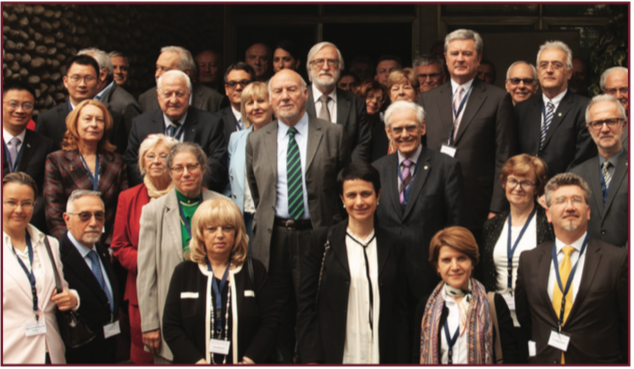
The future for human beings has always been uncertain and uncertainty is a perpetual source of doubt, insecurity and anxiety regarding real or potential threats. The topic of uncertainty is particularly relevant today. For in spite of remarkable gains in knowledge, the sense of uncertainty about humanity’s future is greater today than ever before due to the increasing speed of change, the growing complexity of society and the global interconnectedness between people, places and activities. “Approaching 20?? Year”, the seventh in the series of annual conferences, was held in Podgorica on May 16-18, 2019. It was hosted by the Montenegrin Academy of Sciences and Arts, in collaboration with WAAS, the European Academy of Sciences and Arts (EASA) and the Global Round Table (GRT), and included participants from Europe, Asia and the Americas. |
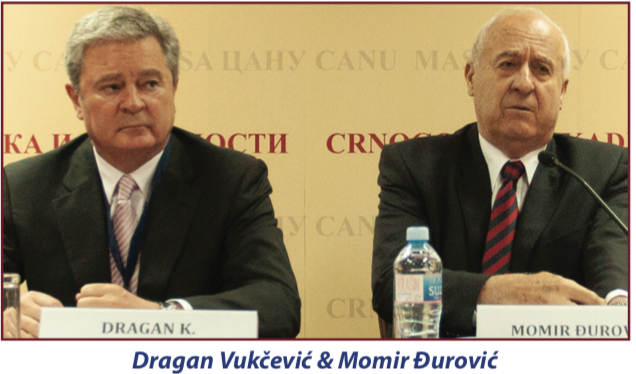 The conference explored a wide range of questions and perceived threats arising from international tensions, mass migration, political instability, economic inequality, the onset of the 4th Industrial Revolution, climate change and other factors. But it also focused considerable attention on the emerging potentials for the future, such as the 17 SDGs and the Belt & Road Initiative which are already the single largest peacetime efforts for coordinated global development. The conference explored a wide range of questions and perceived threats arising from international tensions, mass migration, political instability, economic inequality, the onset of the 4th Industrial Revolution, climate change and other factors. But it also focused considerable attention on the emerging potentials for the future, such as the 17 SDGs and the Belt & Road Initiative which are already the single largest peacetime efforts for coordinated global development.
Uncertainty is only the flip side of opportunity and the greater the doubts about the future, then the greater also the potential for positive action to alter the course. The diverse presentations testified to the importance of formulating a positive vision of the future backed by proven strategies and practical plans for realizing it. |
||||||||||||||||||||||||
A Strategy for Uncertain Times
In our complex world with its interconnected problems, the SDGs too are interwoven into a whole. The World in 2050 initiative will show the integrated pathways towards achieving the SDGs. The conference could be summarized in these words from one of the talks: How to swim in the river of time which is full of uncertainties. An understanding of possible uncertainties will help to cope with them. |
Asking the Right Questions
|
||||||||||||||||||||||||
Transnational Challenges & Common Goals
|
Regulating AI
|
||||||||||||||||||||||||
|
|||||||||||||||||||||||||

WAAS Collaborates with Moscow State University on Global Studies |
|||||||||||||||||||||||||
|
While the process of globalization is far advanced, the study of the globalization process is still largely confined to partial, discipline-specific sectoral studies such as those related to demography, international affairs, international law, economy and climate. Even today only a few dozen leading universities are approaching the subject of global studies comprehensively as an interdisciplinary and transdisciplinary process. Russia has long been a pioneer and source of original thinking regarding globalization. |
On June 4-6, 2019 the Russian Academy of Sciences, the Russian Ministry of Science and Higher Education and Lomonosov Moscow State University in collaboration with UNESCO conducted an international conference on “Topical Issues of global studies: Russia in the Globalizing World”, the latest in the long series of conferences and congresses on this subject. Keynote addresses were delivered by Ilya Ilyin, Dean of the Faculty of Global Studies at MSU; Garry Jacobs, CEO of WAAS; John Crowley, UNESCO section chief for social and human sciences; Yury Sayamov, WAAS Fellow and UNESCO Chair for Global Processes; and others exploring political, economic, social, information, educational, environmental, cultural and philosophical dimensions. At the conference WAAS & MSU entered into a five-year agreement to collaborate on research and development of new courses and joint conferences on issues that directly relate to the Academy’s program on New Paradigm, including Peace & Global Security, Governance, Human-Centered Economic Theory, Future of Education, and Culture. |
||||||||||||||||||||||||

Serbia Ten Years after the Great Recession: The Imperative for the Robust Growth |
|||||||||||||||||||||||||
|
The program of the Forum included three plenary sessions, two plenary addresses of special guests, six special events and 26 panels. 1300 government officials, international organizations, economists and executives of leading Serbian and international businesses participated. Introductory addresses were made by Ana Brnabić, Serbian Prime Minister and Siniša Mali, the Finance Minister. In his keynote address, Garry Jacobs, CEO of WAAS, challenged the suitability of conventional economic theory and policies and called on Serbia to adopt innovative approaches in four main areas. |
First, a national program should be introduced to elevate the performance of domestic companies by adoption of advanced management practices rather than emphasizing financial incentives to attract foreign businesses. Second, a strategy and plan should be developed for achieving full employment in Serbia based on a human-centered theoretical and practical approach that emphasizes enhancing the capabilities of the domestic work-force. Third, a radical shift in education should be made to break disciplinary silos and close the gap between academia and society by promoting an interactive, contextual, interdisciplinary, person-centered learning model. And finally, introduction of a complementary currency system similar to the highly successful superdinar adopted by Yugoslavia to overcome hyperinflation in the mid-1990s to dramatically enhance the productivity of social resources and finance the huge investment requirements of the Sustainable Development Goals, with special emphasis on investments in human resources and environmental protection. |
||||||||||||||||||||||||

|
|||||||||||||||||||||||||
|
INTREPID, the network of scholars and practitioners from 32 countries, held the INTREPID Knowledge conference to reimagine the future of universities at the University of Lisbon on March 27-29, 2019. The conference marked four years of research and discussions in the field of higher education and research, and focussed on the importance of inter and trans-disciplinary knowledge for 21st century challenges, facilitating and implementing inter and trans-disciplinarity, and changes in curricula. The role and contribution of universities to a fair and sustainable future shows an unsatisfactory record. Few institutions are capable of learning about themselves, and reimagining their present and future. We need to first question and ‘expose’ our assumptions, unconscious or unassumed biases, paradigms or frames of reference. James Baldwin’s quote—“Not everything that is faced can be changed, but nothing can be changed until it is faced”—should be affixed to every door and wall of today’s universities. Persistent tension between the historically established ways of knowledge production through disciplines, and the urgent |
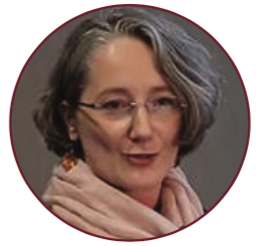 need to widen, and often change, both the production of knowledge and its organisations, suggests that continuing to build universities according to disciplinary divides may be unwise. This explains the wide and rising interest in inter and transdisciplinary research, both within and outside universities, and yet today, embarking on such research requires significant courage, and entails risks as well as opportunities, for one’s career progression. Compared to the lofty promises and acknowledgements of how important, urgent and even essential inter and transdisciplinary knowledge production is supposed to be today, the state of such research, training and career options seems to fall well short of aspirations. need to widen, and often change, both the production of knowledge and its organisations, suggests that continuing to build universities according to disciplinary divides may be unwise. This explains the wide and rising interest in inter and transdisciplinary research, both within and outside universities, and yet today, embarking on such research requires significant courage, and entails risks as well as opportunities, for one’s career progression. Compared to the lofty promises and acknowledgements of how important, urgent and even essential inter and transdisciplinary knowledge production is supposed to be today, the state of such research, training and career options seems to fall well short of aspirations.
What we find is that, increasingly, the answers to the challenges of higher education institutions are known, even widely understood, and yet—in order for universities to become a stronghold of solutions for sustainable futures, rather than a more or less complicit part of the problem of un-sustainability, courageous and radical change—both in universities and beyond—is needed now. Presentations, videos, and the graphic recordings of the conference are available on the Intrepid website. |
||||||||||||||||||||||||
Transforming the University
Volume 3, Issue 6 – May, 2019Click here to read the latest issue of Cadmus |
|||||||||||||||||||||||||

Agreement Proposal for Academic, Scientific, Artistic and Literary Communities—in short, for Intellectuals—to take the lead in social mobilization and ensure that all required changes are implemented before it is too late. “Each unique human being capable of creating, there lies our hope.” |
|||||||||||||||||||||||||
|
Young people are also taking action knowing that their destiny cannot be placed in the hands of neoliberal governance. If present generations look into the eyes of their descendants and of all the children of the world they will feel compelled to fully assume their intergenerational responsibilities. Fundamental changes required to ensure a dignified life for everybody will only happen if we, the “peoples”, take control of our common destiny. We know since a few years ago that the demography and the activities of humankind both have an influence on the standards of living that future generations will have on planet Earth. There are no delays or excuses not to strictly comply with Paris Agreements and with the Sustainable Development Goals (SDGs) aimed at “transforming our world”. Among the three main emergencies—extreme poverty together with the increasing social inequality, ecological deterioration and the nuclear threat—climate change is the only one that can doom mankind to a historical failure leading to a point of no return as far as the Earth’s habitability is concerned. The lack of solidarity is increasing. Development aids and funds devoted to the appropriate reception of refugees and immigrants have both experienced a clear decrease. Impunity at an international level and, therefore, the absence of stability and security; the transfer of public responsibilities from political leaders to the “market”; national and religious extremism; racial fanaticism and supremacism… have unfortunately all been revitalized in the last few decades and indifference—the sickness of our time—has also been encouraged as a collective response. The United Nations System and democratic multilateralism have been marginalized by creating autocratic groups and encouraging nations to leave UN institutions, as has often been the case with United States’ Republican Party with regard to critical institutions such as UNESCO, the Convention for the Rights of the Child, the International Court of Justice or the creation of the World Trade Organisation beyond the frame of the United Nations System. The Earth Charter, one of the most clairvoyant documents of the last decade, says the following: “We stand at a critical moment in Earth’s history, a time when humanity must choose its future. As the world becomes increasingly interdependent and fragile, the future at once holds great peril and great promise. To move forward we must recognize that in the midst of a magnificent diversity of cultures and life forms we are one human family and one Earth community with a common destiny. We must join together to bring forth a sustainable global society founded on respect for nature, universal human rights, economic justice, and a culture of peace…”. We have helplessly witnessed the replacement of ethical principles—justice, liberty, equality and solidarity, as established in the UNESCO Constitution—by trade rules. We should have protected our common ethical values and ideals, starting with equal dignity of all human beings. We have not been able to defend what should have been defended, we have not preserved efficient democracies, cooperation (which has been replaced by exploitation) and industries from being destroyed, the last ones due to relocation of production… we have been sceptical and disoriented citizens instead of |
individuals ready to follow the democratic principles which still could, if urgently implemented, straighten many of the crooked paths that humanity is following today.
We are facing a gigantic media power which turns most of the citizenship into distracted and impassive spectators. Education is oriented to having and obeying rather than being “free and responsible”… Human beings are unique due to their impressive creative capacity, their ability to anticipate and prevent, to deliberately design their own future. The future is still to be created. “Everything has yet to be built and everything is still possible… but who will do it if not us?” says Miquel Martí i Pol. We should all get together against the few who want to keep control over our common destiny. The time has come to put into practice a new concept of security that will not only take into consideration the territories, but also the people who live within their boundaries (food, drinking water, quality education, health services, environmental care). It is time for action. We have many diagnoses at our disposal. We now have to administer the effective treatments before it is too late. AGREEMENT Academic, scientific, artistic and literary communities—that is, intellectuals as a whole—must take the lead today in the search of appropriate responses for the threats humanity is facing at a global scale. In order to deal with potentially irreversible processes a great mobilization is needed that will make all human beings aware of the current situation and, consequently, will encourage them to become committed actors, ready to take action without delay through an adequate daily behaviour. The deep and fundamental changes that have become unavoidable will only happen if we, the “peoples”, take control of our common destiny. A great popular clamour —both in the street and in cyberspace—is now urgent if we want to establish an efficient multilateralism endowed with all requested personnel, financial, technical and defence resources. The General Assembly should consist in equal shares of representatives from the States and from the civil society institutions. Apart from the Territorial Security Council, there should be a Socio-economic Council and an Environmental Council. The appropriate and timely fulfilment of the 2030 Agenda —voted by the UN General Assembly through its Resolution A/RES/70/1 (October 2015), entitled “Transforming our World: The 2030 Agenda for Sustainable Development”, and which sets the 17 Sustainable Development Goals that are essential to correct the current System—as well as the Paris Agreements on Climate Change (December 2015) will only be possible within the context of a global, efficient and swift cooperation, coordinated under the authority of the United Nations. The SDGs represent the firm commitment of all countries of the world, within the multilateral frame of the United Nations, to redirect people’s behaviour, ensuring an equal dignity and the use of strategies based on knowledge and allowing a human and sustainable development (food, drinking water, quality education, health services, environmental care) for everybody. We need to learn how to express ourselves, how to participate, how to listen, how to share, how to live together. In order to face global threats, we also need global responses from a worldwide citizenship, fully alert and capable of preventing or reducing the evil consequences that would otherwise result from current trends. This is an unavoidable intergenerational responsibility that must be faced for the first time in history in the era of the Anthropocene. If we do not succeed in putting an end to the effects of human activity on the Earth’s habitability, the legacy left by current generations to the following ones would be an inevitable step backward in mankind’s evolution. Let us join our voices so that they reach the highest range and are heard everywhere, giving rise to an interaction that will place the “most human sense” in the heart of the educational, social, cultural, political and economic action, thus enabling a positive dialogue with all actors and allowing a genuine human development that will ensure harmony with nature and cultural diversity. |
||||||||||||||||||||||||
 |
|||||||||||||||||||||||||
|
18th IEEE International Conference on Cognitive Informatics & Cognitive Computing IEEE ICCI*CC 2019 is co-organized by IEEE and WAAS, and consists of two parallel yet intertwined tracks to promote fruitful, reciprocal knowledge, a cross-fertilization of the two lines of thinking that are complementary to each other. The CPT (Cyber-Physical-Technical) Track organized by IEEE will present the latest developments in natural intelligence systems, man-machine systems, cognitive robots, intelligent IoT, etc. The CSW (Cognition-Society-Wellbeing) Track, organized by WAAS, will examine the economic, educational, social, legal, political, cultural, epistemological and psychological implications of rapid advances in cognitive computing and machine learning. For more information, please contact support@worldacademy.org |
Human-Centered Symbiotic System Science (SSS) for Industry 4.0 SMC’19 – October 6-9, 2019 – Bari, Italy The theme of the Systems, Man, and Cybernetics (IEEE SMC 2019) conference is Industry 4.0. SMC 2019 includes a special session on human-centered Symbiotic System Science (SSS) for Industry 4.0. SSS is a growing scientific area which is taking a leadership role in fostering consensus on how best to bring about symbiotic relationships between autonomous systems. WAAS is partnering in this special session that deals with the problem of cognitive and evolutive learning by SSS. The goal is to share SSS concepts and help develop more effective human-centered symbiotic systems, faster and more reliably. For more information, please contact |
||||||||||||||||||||||||


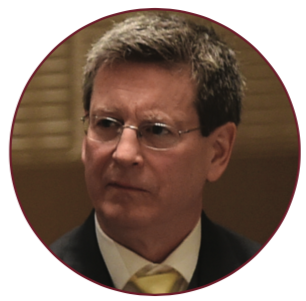 agreement that we should achieve the goals, but no agreement about how to achieve them. Efforts to achieve the goals largely are focused on symptoms, not root causes. This will produce benefits, but not come close to achieving the goals.
agreement that we should achieve the goals, but no agreement about how to achieve them. Efforts to achieve the goals largely are focused on symptoms, not root causes. This will produce benefits, but not come close to achieving the goals.
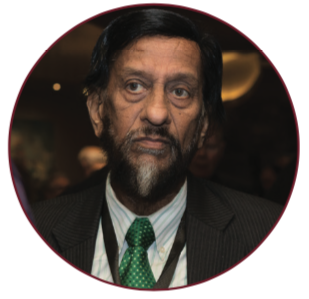 Given the various developments at the global level, leadership needs to go beyond issues related to the nation-state. It is necessary to ensure that the global community evolves in a coordinated manner since every component of the global stakeholder system must understand that we are all in it together. Every stakeholder group must appreciate and sense the real goals and aspirations of every other stakeholder group, because only from that would be created a sense of harmony across various elements of the system.
Given the various developments at the global level, leadership needs to go beyond issues related to the nation-state. It is necessary to ensure that the global community evolves in a coordinated manner since every component of the global stakeholder system must understand that we are all in it together. Every stakeholder group must appreciate and sense the real goals and aspirations of every other stakeholder group, because only from that would be created a sense of harmony across various elements of the system.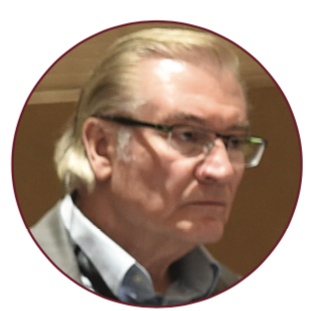 Things often turn out to be more complex than expected, and competing interests get worked out by complexity. Taking this into account, we should assume that future global leadership will be more complex than we conceive today. A trans-institutional concept of global leadership is now emerging from those in the UN, nation-states, universities or corporations. A Trans-Institution (TI) can be for anything—for addressing global warming, future forms of Artificial Intelligence, etc. TI has no “legal personhood” at the moment. It is a new kind of institution. TI cuts across other institutions attracting those most interested in the issue it addresses. Its governing body would have some from government, corporations, universities, NGOs, and international organizations, but not a majority of any one. The people who do the work would come from all these institutions, but not a majority of any one body. The money would come from all these
Things often turn out to be more complex than expected, and competing interests get worked out by complexity. Taking this into account, we should assume that future global leadership will be more complex than we conceive today. A trans-institutional concept of global leadership is now emerging from those in the UN, nation-states, universities or corporations. A Trans-Institution (TI) can be for anything—for addressing global warming, future forms of Artificial Intelligence, etc. TI has no “legal personhood” at the moment. It is a new kind of institution. TI cuts across other institutions attracting those most interested in the issue it addresses. Its governing body would have some from government, corporations, universities, NGOs, and international organizations, but not a majority of any one. The people who do the work would come from all these institutions, but not a majority of any one body. The money would come from all these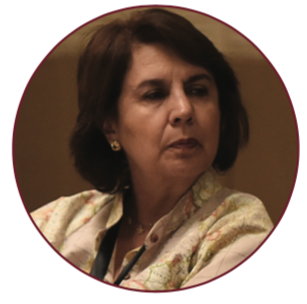 We live in a world of uncertainty in which a multipolar and diverse leadership is implemented in important issues such as education. In this context, an institution such as WAAS has an important role because it brings experiences and knowledge that together can be empowered in this interconnected world with endless possibilities. It is also important that our discussions are always in a context of values, since ethics is current and present in the great religions, and values are the base for all forms of power.
We live in a world of uncertainty in which a multipolar and diverse leadership is implemented in important issues such as education. In this context, an institution such as WAAS has an important role because it brings experiences and knowledge that together can be empowered in this interconnected world with endless possibilities. It is also important that our discussions are always in a context of values, since ethics is current and present in the great religions, and values are the base for all forms of power.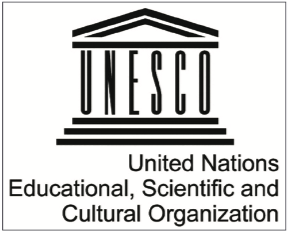 WAAS has just received a letter from
WAAS has just received a letter from 


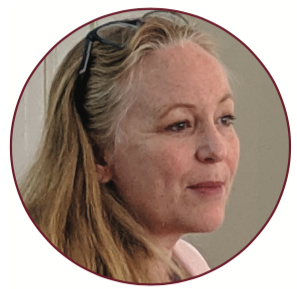
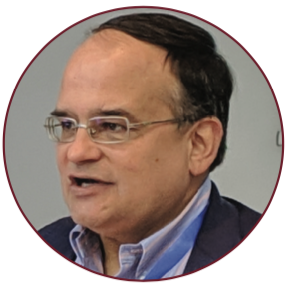
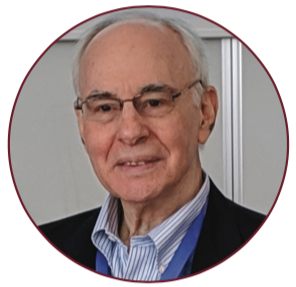
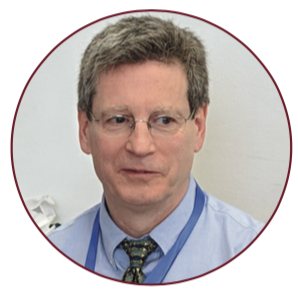
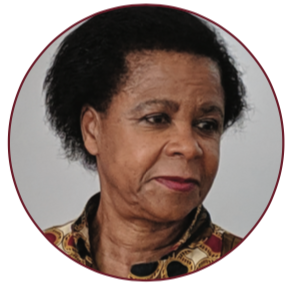
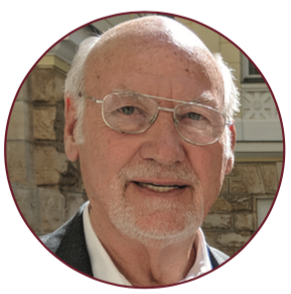
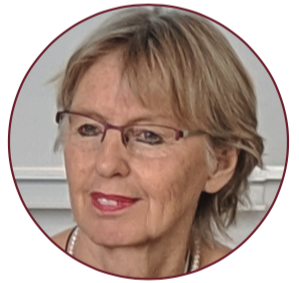 How can we help the new paradigm emerge that reshapes our role as humans within the greater Earth Community? What is the new operating system for humankind that is built on human dignity, respect for nature and protection of the commons?
How can we help the new paradigm emerge that reshapes our role as humans within the greater Earth Community? What is the new operating system for humankind that is built on human dignity, respect for nature and protection of the commons?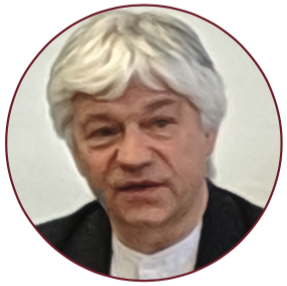

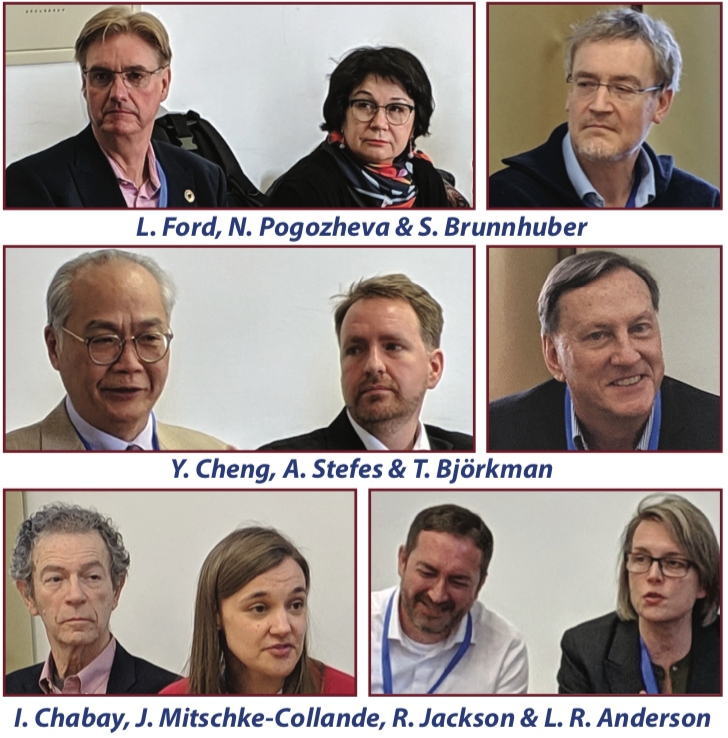
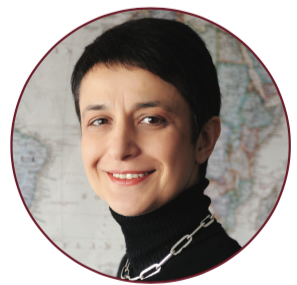 Civilization refers to the overall technological, spiritual, political and social development of humanity.
Civilization refers to the overall technological, spiritual, political and social development of humanity.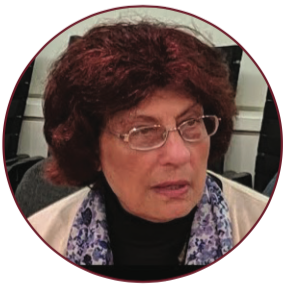 The meeting facilitated the engagement between members of WAAS and the Club of Rome seeking common ground for collaborative initiatives.
The meeting facilitated the engagement between members of WAAS and the Club of Rome seeking common ground for collaborative initiatives.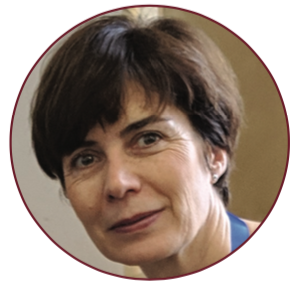 Trying to define the idea of civilization and its different interpretations was a challenging task and one of the main points of discussion. The magnitude of the task of identifying the main features of the New Emerging Civilization was such that it is not easy to see what kind of tangible outcome will come out of the seminar. In any case, it has been an enriching, intellectually challenging and interesting experience.
Trying to define the idea of civilization and its different interpretations was a challenging task and one of the main points of discussion. The magnitude of the task of identifying the main features of the New Emerging Civilization was such that it is not easy to see what kind of tangible outcome will come out of the seminar. In any case, it has been an enriching, intellectually challenging and interesting experience.
 On the 30
On the 30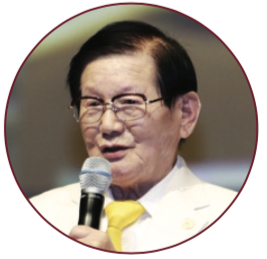 The conference also applied these lessons to other regions to identify useful practices and tools to defuse current global conflicts. Drawing on insights from the reunification of Germany and recalling how sudden and unexpected that event was, the prospects for reunification of Korea appear far more realistic than commonly perceived.
The conference also applied these lessons to other regions to identify useful practices and tools to defuse current global conflicts. Drawing on insights from the reunification of Germany and recalling how sudden and unexpected that event was, the prospects for reunification of Korea appear far more realistic than commonly perceived. 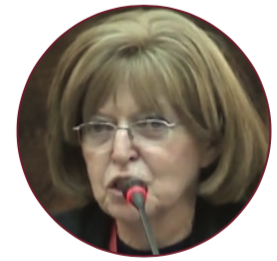 In order to achieve world peace, combat violent extremism and learn from the history of the Levant to prevent future conflicts, we need to implement the SDGs and develop a culture of peace. These in turn require legislation to make relevant education mandatory for all. Working towards this goal, WAAS collaborated with the Inter-Parliamentary Coalition for Global Ethics (Global Institute and Alliance for Peace Beyond Borders) and the Institute for Advanced Studies in Levant Culture and Civilization (ISACCL) and conducted on March 7-9, 2019, a High Level Forum in the Italian Senate in Rome on the theme “The Levant Initiative for World Peace”.
In order to achieve world peace, combat violent extremism and learn from the history of the Levant to prevent future conflicts, we need to implement the SDGs and develop a culture of peace. These in turn require legislation to make relevant education mandatory for all. Working towards this goal, WAAS collaborated with the Inter-Parliamentary Coalition for Global Ethics (Global Institute and Alliance for Peace Beyond Borders) and the Institute for Advanced Studies in Levant Culture and Civilization (ISACCL) and conducted on March 7-9, 2019, a High Level Forum in the Italian Senate in Rome on the theme “The Levant Initiative for World Peace”.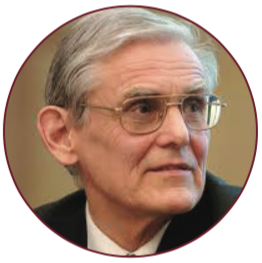
 The value of these conferences is, as the President of MASA
The value of these conferences is, as the President of MASA 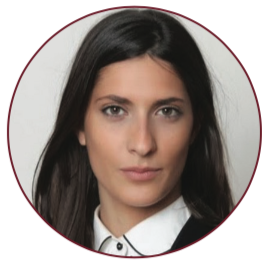
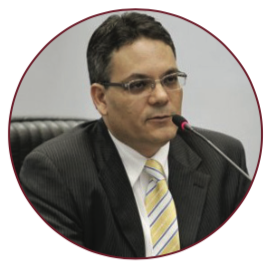 AI is used in all sectors of human life, but it is still unregulated in spite of its profound impact and risk to human and social security. There are no consistent initiatives by transnational organizations and national governments to control theuse of AI. As Elon Musk said, we need to be super- careful with AI. It is potentially more dangerous than nukes. We need regulation of AI and the creation of ethical and legal limits to its use.
AI is used in all sectors of human life, but it is still unregulated in spite of its profound impact and risk to human and social security. There are no consistent initiatives by transnational organizations and national governments to control theuse of AI. As Elon Musk said, we need to be super- careful with AI. It is potentially more dangerous than nukes. We need regulation of AI and the creation of ethical and legal limits to its use.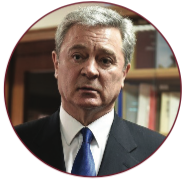
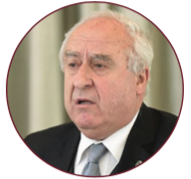
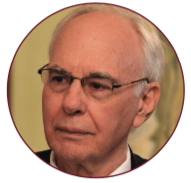
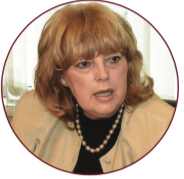


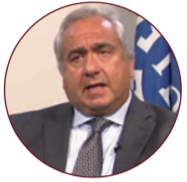
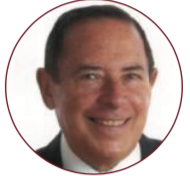
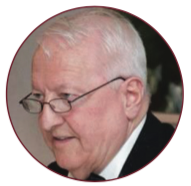
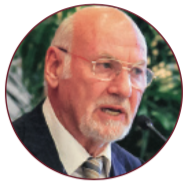
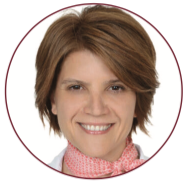
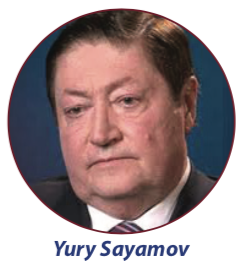 Human relationships are the foundation of civilization and culture. The advance of civilization over the last few millennia has been the result of ever-increasing contact, interaction and mutually beneficial cooperation between human beings over wider expanses of space and time. What began at the level of local contacts has now expanded to encompass the entire human community.
Human relationships are the foundation of civilization and culture. The advance of civilization over the last few millennia has been the result of ever-increasing contact, interaction and mutually beneficial cooperation between human beings over wider expanses of space and time. What began at the level of local contacts has now expanded to encompass the entire human community.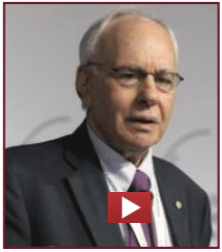
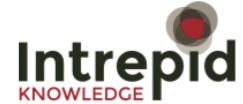
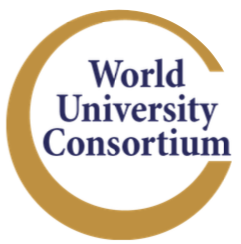 Universities are a social asset, but they risk being overwhelmed by outdated pedagogy, exploitation of young staff, distorted and even faked research, outrageous fees, outrageous pay for top managers, corporate rip-offs, corruption, sexism, racism, and irrelevant degrees.
Universities are a social asset, but they risk being overwhelmed by outdated pedagogy, exploitation of young staff, distorted and even faked research, outrageous fees, outrageous pay for top managers, corporate rip-offs, corruption, sexism, racism, and irrelevant degrees.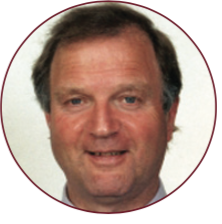 There is a lack of genuine willingness on the part of many universities to mould their teaching and interactive learning across disciplines and beyond their walls. Change is discouraged by formal procedures. Universities must seriously adopt a meaningful, radical and transformative progression towards sustainability. The transition requires high levels of commitment and motivation on the part of senior administrators, student union bodies and the funding public.
There is a lack of genuine willingness on the part of many universities to mould their teaching and interactive learning across disciplines and beyond their walls. Change is discouraged by formal procedures. Universities must seriously adopt a meaningful, radical and transformative progression towards sustainability. The transition requires high levels of commitment and motivation on the part of senior administrators, student union bodies and the funding public.
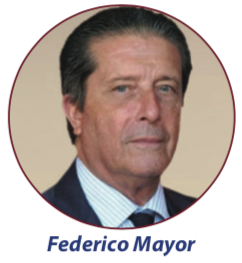 Until only three decades ago the vast majority of human beings were born, lived and died in a few square kilometres, under the dominance of male absolute power. Now, for the first time in history, human beings have access to global information and can acquire the technological skills they require to become citizens of the world, aware of the nature of threats and of the need for an appropriate and timely response. Digital technology has facilitated the flow of information and—even more importantly—the capacity to express oneself. In this new era, the most salient fact is the increasing participation of women. The evil adage “si vis pacem, para bellum” (if you want peace, prepare for war), which was the invariable dogma of male power, no longer holds true; it has now become possible to imagine the transition from a culture based on domination, imposition and violence to a culture of encounter, dialogue, conciliation, alliance and peace. There has been a historic transition from force to word as women have gradually gained the role they deserve in decision making. Fortunately women are already expressing, in person or through cyberspace, their collective support to the unavoidable transformations that must take place if we want to correct current trends.
Until only three decades ago the vast majority of human beings were born, lived and died in a few square kilometres, under the dominance of male absolute power. Now, for the first time in history, human beings have access to global information and can acquire the technological skills they require to become citizens of the world, aware of the nature of threats and of the need for an appropriate and timely response. Digital technology has facilitated the flow of information and—even more importantly—the capacity to express oneself. In this new era, the most salient fact is the increasing participation of women. The evil adage “si vis pacem, para bellum” (if you want peace, prepare for war), which was the invariable dogma of male power, no longer holds true; it has now become possible to imagine the transition from a culture based on domination, imposition and violence to a culture of encounter, dialogue, conciliation, alliance and peace. There has been a historic transition from force to word as women have gradually gained the role they deserve in decision making. Fortunately women are already expressing, in person or through cyberspace, their collective support to the unavoidable transformations that must take place if we want to correct current trends.